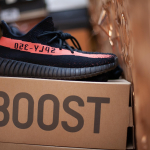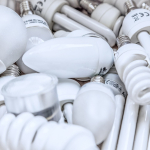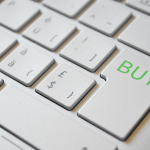In today’s fast-paced world, managing personal finances can become overwhelming. However, personal finance apps offer a powerful solution to optimize your budget and improve your spending habits. These digital tools provide user-friendly features to track expenses, create budgets, and analyze spending patterns. By harnessing the capabilities of these apps, you can take full control of your financial health, making informed decisions that align with your goals. Whether you’re looking to save more or eliminate unnecessary expenses, personal finance apps can be the game-changer you need.
Understanding Personal Finance Apps and Their Benefits

Personal finance apps have revolutionized how individuals manage money, offering convenience and efficiency. Here are some key benefits of using these tools:
- Real-Time Tracking: Monitor your expenses as they occur, enabling immediate adjustments to your budget.
- Budgeting Made Easy: Create and customize budgets that align with your financial goals, making it simpler to control spending.
- Insightful Analytics: Access reports that provide insights into spending patterns, helping you make informed decisions.
- Goal Setting: Set financial goals and track progress, whether saving for a vacation or paying off debt.
- Expense Categorization: Automatically categorize expenses, allowing you to see where your money goes each month.
In summary, personal finance apps empower users to take control of their financial situations with user-friendly interfaces and innovative features. By leveraging these tools, you can develop a healthier relationship with money and streamline your budgeting process.
Key Features to Look for in Budgeting Apps

When selecting a personal finance app, consider the following essential features to enhance your budgeting experience:
- User-Friendly Interface: A clean, intuitive design makes navigation easier, allowing you to focus on managing your finances rather than learning how to use the app.
- Expense Tracking: This feature enables you to categorize and monitor all your spending. Look for apps that offer customizable categories for a tailored experience.
- Budgeting Tools: Search for apps that allow you to set monthly budgets, track performance against these goals, and receive alerts when you’re nearing limits.
- Reporting and Analytics: Select an app that provides clear visual reports (charts/graphs) of your financial progress, as this aids in identifying trends and making informed decisions.
- Multi-Account Support: The ability to integrate multiple bank and credit accounts in one platform simplifies monitoring your overall financial health.
- Security Features: Ensure the app employs robust security measures, such as encryption and multi-factor authentication, to protect your sensitive information.
By focusing on these key features, you can find a budgeting app that optimizes your personal finance management effectively.
Tips for Effectively Using Personal Finance Apps
To truly maximize the benefits of personal finance apps, consider these essential tips:
- Set Clear Goals: Define specific financial objectives, such as saving for a vacation or paying off debt. This clarity helps the app tailor its suggestions.
- Regularly Update Transactions: Make a habit of entering transactions or syncing accounts daily. This practice ensures accuracy in tracking your spending and budget.
- Utilize Budgeting Tools: Take advantage of features like spending categories and budget limits. Set realistic budgets that align with your goals for better insights.
- Analyze Spendings: Review monthly reports to understand spending trends. Identifying patterns enables you to adjust habits accordingly.
- Take Advantage of Notifications: Enable alerts for bill payments and spending limits. Notification reminders keep you accountable.
- Stay Flexible: Be open to adjusting budgets based on life changes. Flexibility ensures your finances remain on track during unexpected circumstances.
By following these tips, you can leverage personal finance apps to enhance your financial literacy and create better spending habits.
Improving Spending Habits Through Digital Tools
Leveraging personal finance apps can significantly transform your spending habits. By providing real-time insights into your financial behavior, these tools help you make informed decisions. Here are some effective strategies to enhance your spending habits:
- Track Your Expenses: Regularly logging your purchases allows you to identify spending patterns. Focus on categories where you tend to overspend.
- Set Budgets: Allocate specific amounts for different expense categories (e.g., groceries, entertainment). A visual representation of your budget can motivate you to stay within your limits.
- Use Notifications: Enable alerts to notify you when you’re nearing your budget limits. These reminders can promote self-regulation.
- Analyze Spending Trends: Review monthly reports provided by the app. Understanding which areas consume most of your income can guide you to make necessary adjustments.
- Establish Savings Goals: Set targets for savings to encourage mindful spending. Achieving these goals can foster a more disciplined approach to your finances.
With consistent use, personal finance apps will empower you to develop better spending habits and achieve your financial goals.
Frequently Asked Questions
What features should I look for in a personal finance app?
When selecting a personal finance app, it’s essential to consider various key features that can enhance your budgeting and spending habits. Ideally, the app should include automatic transaction tracking, allowing you to link your bank accounts for real-time updates. Look for customizable budget categories that let you fit your unique financial situation. Additional features like spending analytics, bill reminders, and financial goal setting can further empower you to manage your finances more effectively. Security should not be overlooked, so ensure the app offers robust security protocols to keep your financial data safe.
How can personal finance apps help improve my spending habits?
Personal finance apps can significantly enhance your spending habits by providing you with detailed insights into your financial behavior. By categorizing your expenses and showing you where your money goes each month, these apps enable you to identify unnecessary spending and prioritize saving. Many apps come with features like spending alerts, which notify you when you’re about to exceed your budget in specific categories. By setting financial goals and tracking your progress with visual graphs and charts, you can foster accountability and motivation to stick to better spending behaviors.
Are personal finance apps secure for managing sensitive information?
Yes, most reputable personal finance apps employ stringent security measures to protect your sensitive information. These apps typically use encryption protocols similar to those utilized by banks to secure user data. Additionally, they may incorporate features such as two-factor authentication, biometric login, and continuous security monitoring to further enhance safety. However, it is always advisable to review the app’s privacy policy and user reviews regarding data security to ensure that your financial information will be safeguarded while using the app.
Which personal finance app is best for beginners?
For beginners, a personal finance app that combines simplicity with essential functionality is ideal. Apps such as Mint and YNAB (You Need A Budget) are highly recommended for newcomers. Mint offers an intuitive interface for tracking spending, setting budgets, and viewing credit scores at a glance. On the other hand, YNAB focuses on teaching budgeting principles that encourage proactive financial management. Both apps provide ample resources and support for beginners, helping them grasp fundamental personal finance concepts while effectively managing their budget.














Comments are closed.